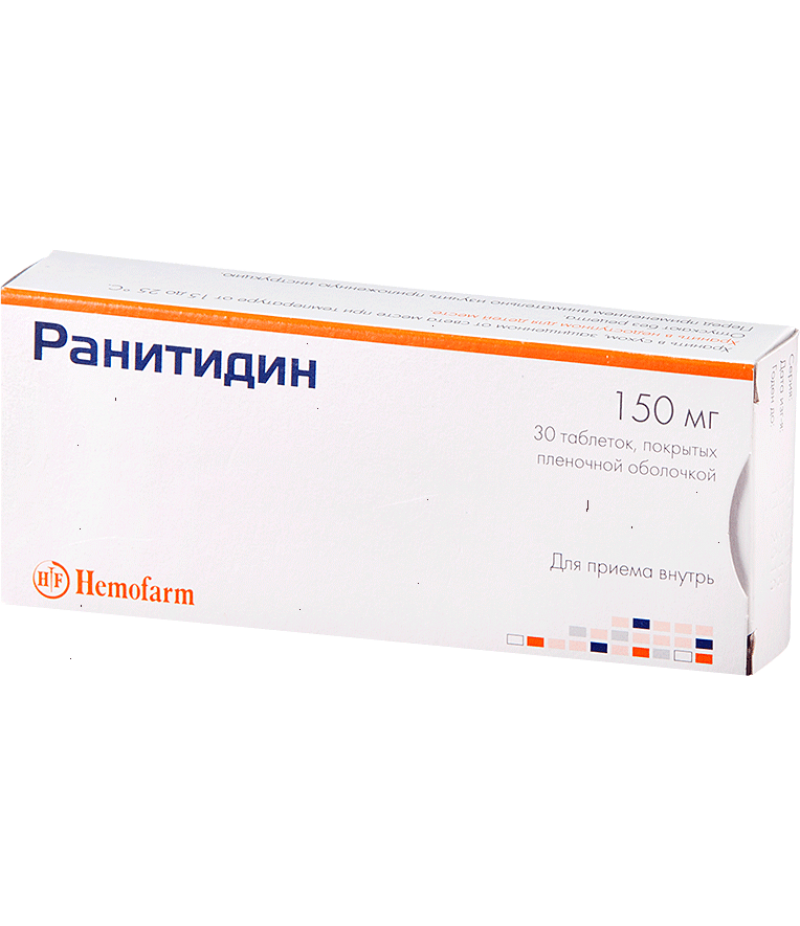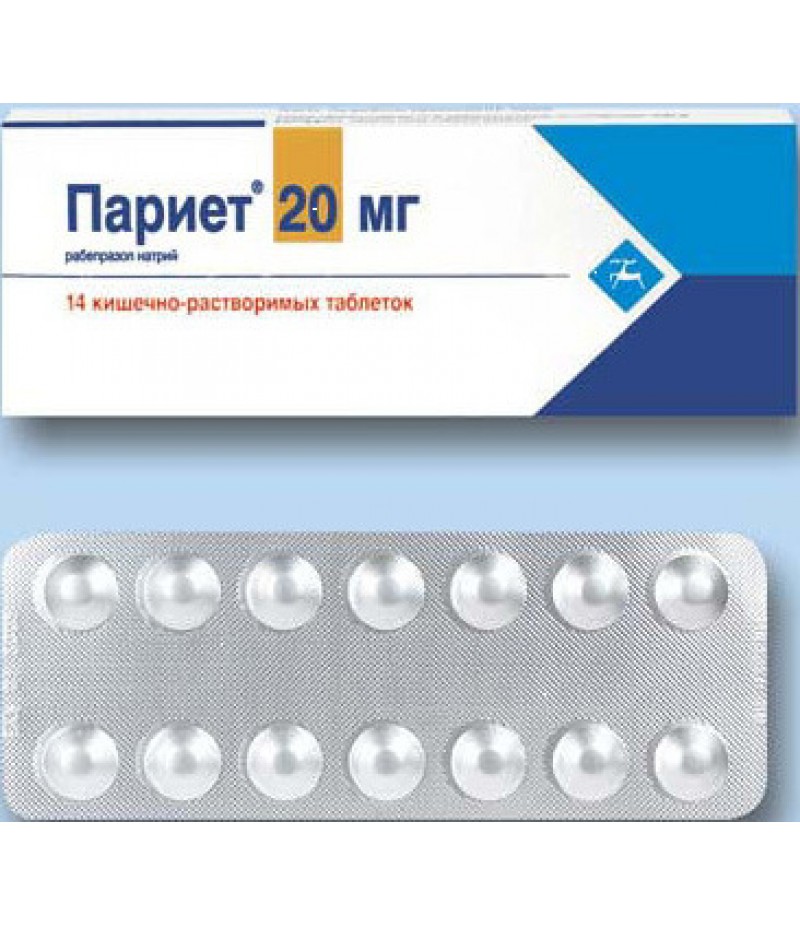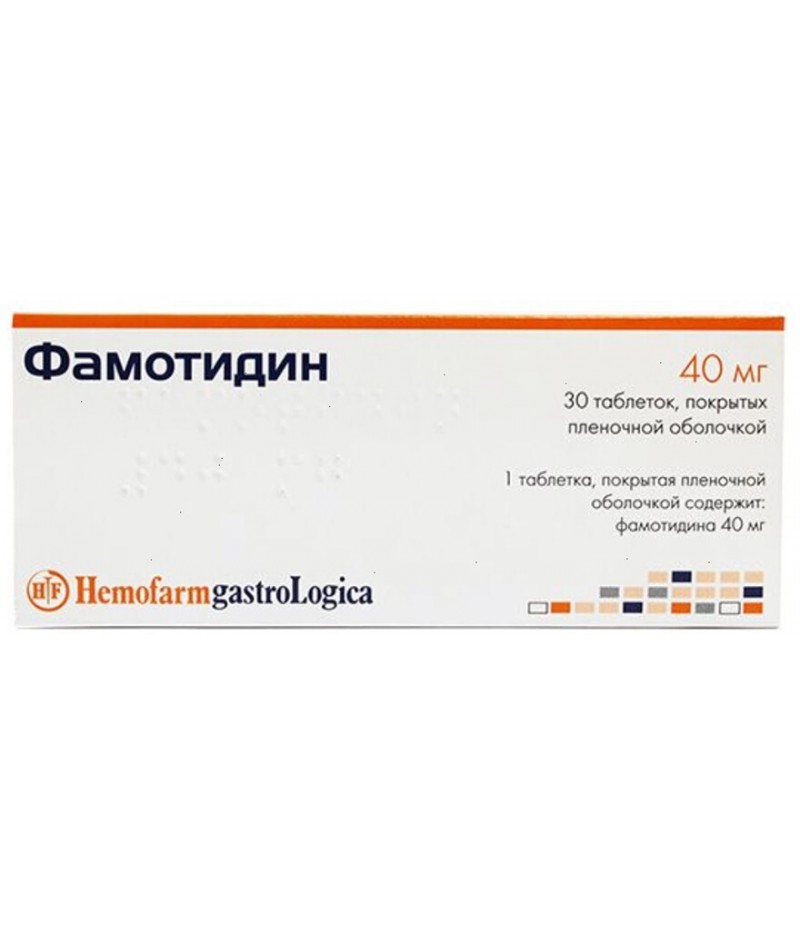Ranitidin tabs 150mg #30
- $3.82
- 3 or more $3.73
- Availability:In Stock
Instruction for RanitidinTo buy Ranitidin just add it to your cartCompositionThe film-coated tablet contains 150/300 mg of Ranitidin hydrochloride. Excipients: silicon dioxide (colloid), MCC (12th type), copovidone, stearate Mg.Co..
Tags: tabs
Instruction for Ranitidin
To buy Ranitidin just add it to your cart
Composition
The film-coated tablet contains 150/300 mg of Ranitidin hydrochloride. Excipients: silicon dioxide (colloid), MCC (12th type), copovidone, stearate Mg.
Components of the film shell (white Opadry AMV OY-V28920): soy lecithin, talc, xanthan gum, titanium dioxide, polyvinyl alcohol.
The injection solution (1 ml) contains 0.025 grams of Ranitidin hydrochloride.
Form of issue
Ranitidin is available in tablet form and as injections.
Tablets in a film membrane are packed in blisters of 10 pcs. In a cardboard bundle there may be 2, 3 or 10 blisters.
Solution for injection is issued in ampoules of 2 ml.
pharmachologic effect
Ranitidin Akos is an antiulcer drug whose active substance belongs to the histamine-H2 receptor antagonist group. The principle of action is based on the blocking of H2 receptors in parietal cells located in the mucous membrane of the stomach, as well as on inhibition of the production of hydrochloric acid. Under the influence of the active substance, the volume of total secretion decreases, suppressing the activity of pepsin in gastric juice.
Thanks to the antisecretory effect of Ranitidin, it is possible to create favorable conditions for the healing of ulcerative lesions in the digestive tract (stomach, 12-type intestine). The active substance is able to provide a protective action due to the enhancement of reparative processes, increasing the release of special mucous substances, improving microcirculation.
Pharmacodynamics and pharmacokinetics
The active substance Ranitidin is rapidly absorbed from the lumen of the digestive tract. Food does not affect the degree of absorption. Biological accessibility reaches 50%. In 2-3 hours after oral intake, the peak concentration is recorded. With plasma proteins binds to 15%. Partial metabolism takes place in the hepatic system with the formation of S-oxide Ranitidin and desmethylranitidine.
The drug is characterized by the effect of "first passage" through the hepatic system. The condition of the liver affects the degree and speed of elimination. After taking per os, the elimination half-life is 2.5 hours, and with creatinine clearance of 20-30 ml / min, this value increases to 8-9 hours.
An insignificant amount is excreted with caloric masses, the main part is output unchanged through the renal system. The active component poorly crosses the blood-brain barrier, but penetrates well into the placenta. Ranitidin is excreted by lactation.
Indications for use Ranitidin
Ranitidin tablets - from what help? The main area of application of the drug is gastroenterology.
Ranitidin Akos - what helps? The drug is prescribed for the treatment of various pathologies of the digestive system, and can also be used for preventive purposes.
Indications for use Ranitidin Acry
symptomatic ulcers of the digestive tract;
peptic ulcer of the digestive system (stomach, duodenum);
Zollinger-Ellison syndrome;
prevention of aspiration by gastric juice during surgical interventions with the introduction of anesthesia;
prevention of the development of "stressful" ulcers;
reflux esophagitis;
erosive esophagitis;
prevention of ulcerative gastrointestinal lesions after surgical interventions;
prevention of recurrence of bleeding from the upper parts of the digestive tract.
Indications for the use of Ranitidin Sopharma are similar.
Contraindications
With pathology of excretory function of the renal system, tablets from the stomach are prescribed with caution.
Absolute contraindications:
lactation;
individual hypersensitivity;
gestation.
Ranitidin Acry is not used in pediatric practice (age limits up to 14 years).
Side effects
The system of hematopoiesis:
leukopenia (with prolonged therapy);
thrombocytopenia.
The cardiovascular system:
the development of atrio-ventricular blockade (rarely, mainly with intravenous infusion).
The digestive tract:
disorders of stool (constipation / diarrhea syndrome);
hepatitis (very rarely).
Side effects from the central nervous system:
vertigo, dizziness;
fast fatiguability;
blurred vision;
headache;
hallucinations (extremely rare);
confusion (extremely rare).
Endocrine system, metabolism:
increased prolactin levels;
increase in the level of creatinine;
amenorrhea;
gynecomastia;
decreased libido;
impotence.
Other reactions:
recurrent parotitis;
arterial hypotension;
bronchospasm;
arthralgia;
hair loss;
anaphylactic shock;
angioedema;
hives;
various rashes on the skin;
myalgia.
Tablets Ranitidin, instructions for use (Method and dosage)
Treatment scheme is selected individually. The tablets are designed to be taken per os.
The daily dosage is 300-450 mg (it is possible to increase to 600-900 mg if necessary), divided into 2-3 receptions. To prevent an exacerbation of the disease of the digestive tract, the drug is prescribed at bedtime at a dose of 150 mg. The duration of therapy is determined by the course of the disease.
With pathology of the renal system, medication is prescribed twice a day at a dose of 75 mg. Instructions for use Ranitidin Akos is similar. How long you can take the pill you will tell your doctor (the average course of treatment is designed for 2-4 weeks).
Overdose
Main manifestations:
skin rashes;
confusion of consciousness;
headache;
dizziness;
increased drowsiness.
The first aid consists in receiving enterosorbents (Polysorb, Smecta, Activated Carbon and others), calling the ambulance team.
Interaction
There is a decrease in the absorption of Ranitidin in the treatment with antacids. In elderly patients, worsening attention and memory with simultaneous reception of anticholinergic drugs is noted. It is assumed that drugs that block histamine H2 receptors are able to suppress the ulcerogenic effect of drugs from the NSAID group on the gastric mucosa. There is a decrease in the clearance of Warfarin in the treatment with Ranitidin. In medical practice, a case of bleeding and hypoprothrombinemia in a patient who was taking Warfarin is described.
Perhaps an undesirable increase in the absorption of Ranitidin while simultaneously treating bismuth with tricalium dicitrate. The cases of hypoglycemia with Glibenclamide are recorded.
Ranitidin inhibits the absorption of Itraconazole and Ketoconazole. The half-life of metoprolol and its AUC score are elevated when treated with Ranitidin. The absorption of the drug changes with the use of high doses of Sucralfate (more than 2 g).
A delay in excretion of Procainamide through the renal system is noted, which leads to an increase in the concentration of the active substance in the blood. The absorption of triazolam increases, which is associated with a change in the pH of gastric juice. The risk of toxic damage increases with treatment with phenytoin, which is explained by a significant increase in its concentration in the blood. There is an increase in the bioavailability of Furosemide with simultaneous therapy with Ranitidin.
In the medical literature, a case of developing ventricular arrhythmia in the type of bigemini in a patient who took Ranitidin and Quinidine is found. In the treatment of cisapride, the risk of cardiotoxic damage increases. There is an increase in the level of Cyclosporin in the blood with parallel treatment with Ranitidin.
Terms of sale
To buy Ranitidin you don't need a prescription.
Storage conditions
Ranitidin tablets are stored in the original packaging, subject to a temperature range of 15 to 30 degrees.
Shelf life - 2 years.
special instructions
With severe pathology of the renal system, medication is prescribed with caution. Before using the drug, it is necessary to exclude oncological diseases of the intestine, esophagus and stomach.
Long-term therapy of weakened patients who are under stress may provoke the development of bacterial disease of the stomach, as well as the subsequent spread of the inflammatory process.
With a sharp drug cancellation, the risk of recurrence of peptic ulcer increases. Prophylactic therapy is more effective when taking a medication for 45 days in the fall and in the spring, in comparison with a constant intake.
In patients suffering from various rhythm disorders, rapid intravenous administration of the solution may provoke a bradycardia. People with porphyria in the anamnesis of Ranitidin are administered with caution because of the risk of developing an acute attack.
Distortion of indicators of laboratory tests (enzymes of the hepatic system, creatinine, GGT) is allowed. The time interval between taking antacids and Ranitidin should be at least 1-2 hours because of the risk of changing the absorption of the active substance. Clinical studies confirming the safety of the drug in pediatric practice are limited.
Children
In pediatric practice can be used from the age of 14 years.
In pregnancy and lactation
Controlled and adequate studies proving the safety of Ranitidin in pregnancy are not available, which makes it impossible to assign it to this category of patients. Lactation is stopped for the period of treatment for the health of the child.
Ranitidin Reviews
The drug allows you to quickly stop pain syndrome in the epigastric region with ulcer pathology of the digestive tract, gastropathy due to a decrease in the acidity of gastric juice. Reviews about Ranitidin are mostly positive, because the drug is well tolerated, practically without causing negative symptoms while observing the dosing regimen. Among the advantages can be noted the low cost of tablets, a quick effect when cupping heartburn.
Medication can be used in emergency cases with errors in the diet to prevent exacerbation of gastritis, peptic ulcer.
From the minuses - the inability to apply the medication during pregnancy and lactation.



